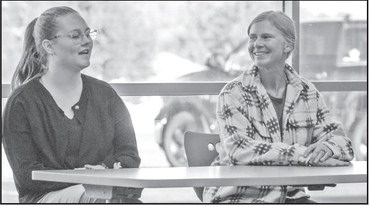County buys four more parcels for shop


By Kevin O’Brien
After purchasing four more parcels of land last week, Marathon County now has nearly 24 acres to work with as it looks to build a new Highway Department headquarters in Kronenwetter. County administrator Lance Leonhard said the county is also close to settling on a purchase agreement with a nearby landowner that would give the county its goal of 25 acres to build on.
By a vote of 31 to 3, the county board of supervisors approved the purchase of four mostly residential lots – all owned by one family – at a total cost of $750,000. Three of the parcels currently have houses on them, and the fourth has a dilapidated shed on it, according to Highway commissioner Jim Griesbach.
The roughly 8.7 acres of land among the four parcels, when added to three parcels previously purchased from Wisconsin Public Service and another private party, puts the total acreage at 23.9, which is just shy of what what the county considers ideal for its new shop.
Before the vote was taken, supervisor Jason Wilhelm wanted to know what the county was doing to address the concerns of landowners Erick and Ariel Scheftgen, who own a home along Old Highway 51 that is surrounded on three sides by the newly purchased land. Ariel Scheftgen came to a committee meeting earlier this month and said her family may not be able to afford to move.
“I just want make sure we don’t force somebody into a bad situation,” Wilhelm said.
Leonhard said he’s had several “very positive” conversations with the Sheftgens, and he’s confident that he’ll soon have an offer to purchase for the board to consider. “I better understand what their issues are, particularly in light of some of the issues with the mortgage they currently have on their property,” he said, referring to the Scheftgens.
The county also faces a potential hitch in its plans due to a zoning ordinance proposed by the village of Kronenwetter, which would require a 500-foot setback from any residential lot lines. Kronenwetter held a public hearing on the proposed zoning change on Monday, and the village board plans to vote on it at its next meeting on May 29.
Leonhard said he has spoken to village president Dave Baker, a former county supervisor, about concerns the village has with water usage and traffic impacts at the proposed Highway shop. He said the water issues were “largely resolved” after the county suggested onsite wells for its road salt brining operations. Traffic issues will continue to be discussed as the project moves forward, he added.
If the county were to buy the one remaining lot in that area, it could have all eight parcels combined into one and apply to have it rezoned, which would eliminate the need for 500-foot setbacks.
Griesbach also told the board that the impact on the tax rolls of purchasing the four parcels would be minimal, noting that the county currently receives about $8,400 in annual property taxes from the land, and the village takes in about $1,900 annually.
Voting against the motion to purchase the land were supervisors Deb Hoppa, Kim Ungerer and Nicholas Endres.
Other business
■ The board approved a resolution to add additional defendants to a lawsuit against opiate manufacturers for their role in the opiate addiction epidemic. Marathon County was one of 67 counties in Wisconsin that joined a lawsuit against the manufacturers, who have agreed to a multi-million dollar settlement. The resolution passed by the board allows the law firms working for the counties to seek damages from additional parties.
■ The board approved a resolution to reorganize the medical examiner’s office as a physician- led operation, which will allow a newly hired forensic pathologist to take over as chief medical examiner at the county’s regional morgue in Wausau.
■ The board approved a resolution classifying lieutenants at the sheriff’s department as Level Q employees within the county’s compensation structure, with wages ranging from $38.04 to $51.35 per hour, and a market rate of $42.60 per hour.
■ The board approved a resolution calling for the state to increase its funding for the circuit court system by $70 million as part of the nextyear budget. The resolution points out that the state and counties are supposed to share the costs of running local courts, but as of 2023, the state’s appropriation amounted to just 12 percent of the cost.
Lance Leonhard


